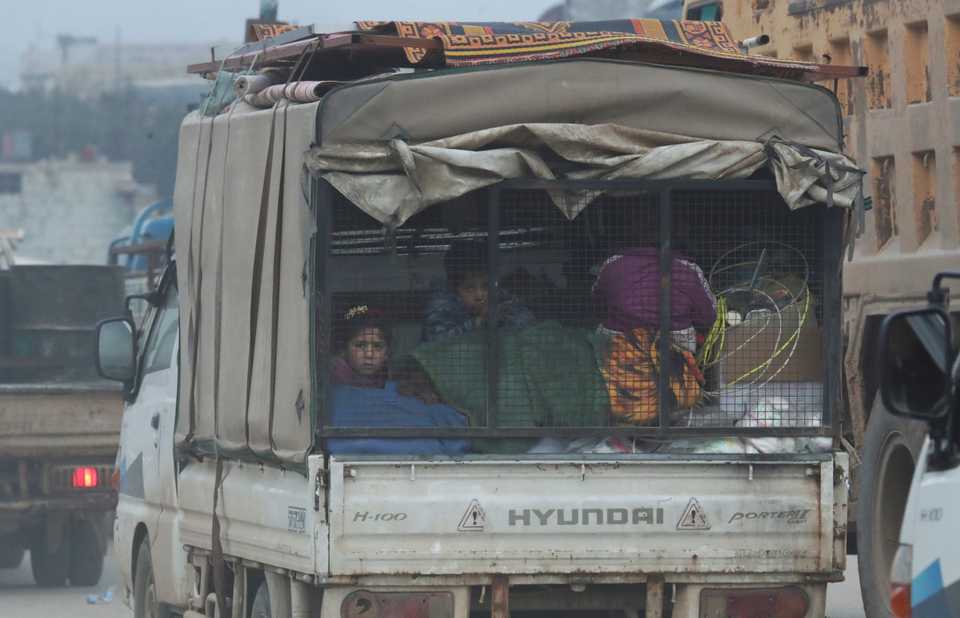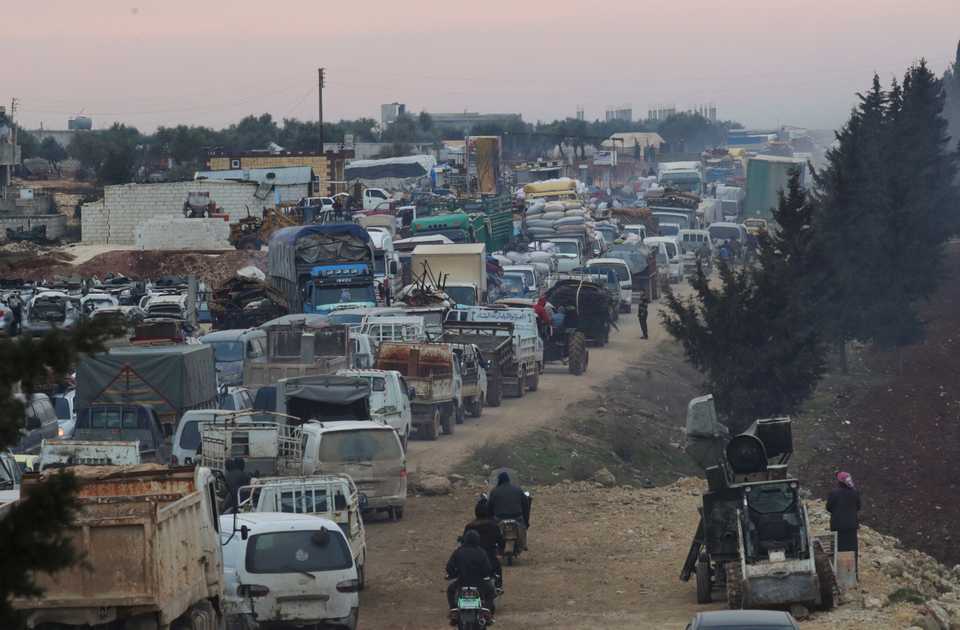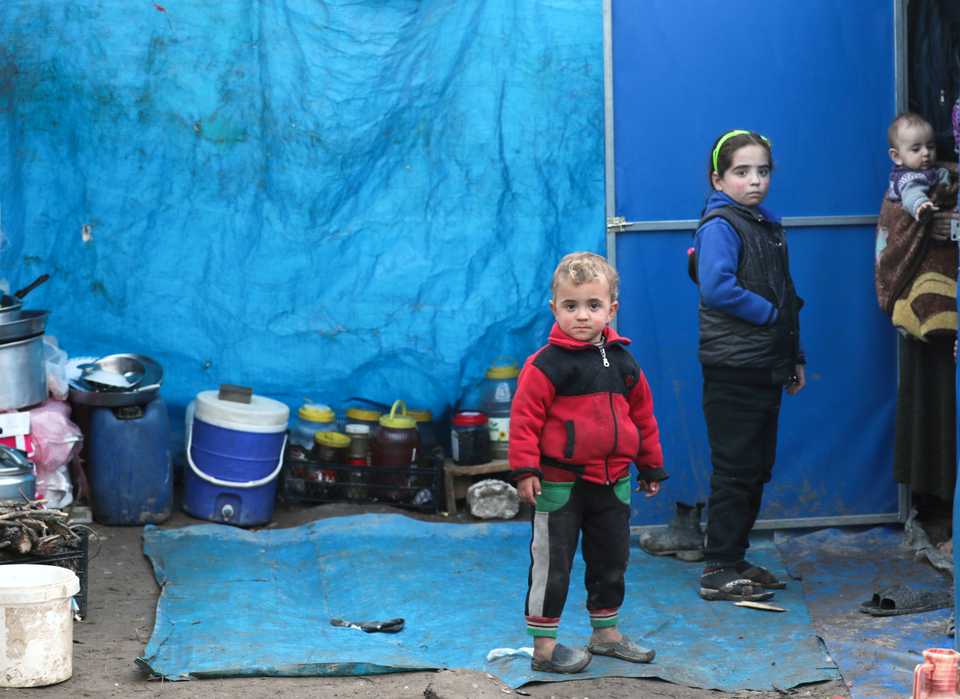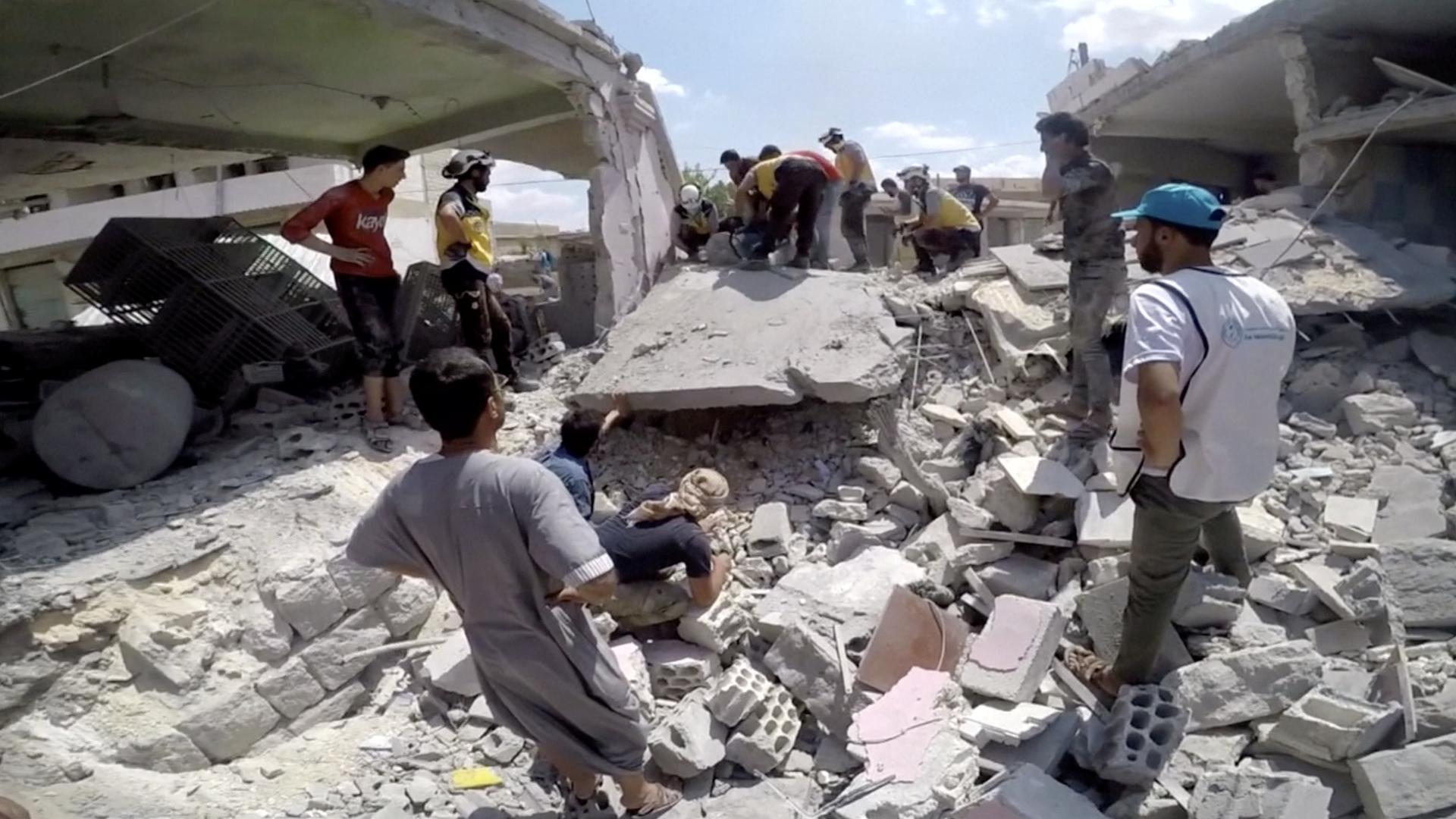Following the last nine brutal years of Syrian war, Idlib is now going through an unprecedented level of bloodletting and displacement and none of the global powers has done anything to stop the bloodlust of Russia-backed Assad regime.
Assad’s winter offensive has not only displaced nearly one million people from their homes in Idlib, the last opposition stronghold, but it has also exposed the rest of the three million people in the province to harsh winter conditions and constant bombing campaigns that give them sleepless nights, impacting their mental health to dangerous margins.
While Ankara has been striving to stop Moscow and Assad from making violent advances into the territory, pressuring them to abide by a de-escalation agreement signed between Russia and Turkey in 2018 with an aim to break the spell of violence in the region, no other country has stepped forward to confront the Assad regime and discourage him from unleashing hell over Idlib’s overpopulated neighbourhoods.
Defiant of Assad’s rule, the people of Idlib are caught between the regime’s deadly bombing campaigns and harsh winter conditions. They have already lost several children and newborn babies to biting cold as many of them froze to death in below zero degree temperatures.
The UN has called upon the international community countless times to register the fact that Assad’s killing machine knows no human bounds.

“We need an end to the fighting, and access to safety to preserve lives,” said Filippo Grandi, UN High Commissioner for Refugees (UNHCR) last week.
“Every day that passes, that call is more urgent. Thousands of innocent people cannot pay the price of a divided international community, whose inability to find a solution to this crisis is going to be a grave stain on our collective international conscience,” Grandi said.
But Russian belligerence, enabled by both American and European idleness, has already put that stain on the international community, whose inactions have facilitated a daily human drama in Syria for nearly a decade.
Turkey’s loneliness
The Idlib drama has also revealed Turkey’s solitary position in the drama. The country is dedicated to helping its nearly four million-strong refugee population as it has been dealing with terrorist groups from Daesh to the YPG/PKK across its borders, where Ankara has established safety zones after three successful military operations.
At the beginning of the civil war, when Ankara was demanding swift action against the regime, it was left alone by Washington and other Western capitals, which paved the way for Assad’s later and ongoing slaughter against its own people.

As the West has constantly refused Turkey’s demands to establish safe zones across northern Syria, at the same time, it has helped the YPG, the Syrian wing of the PKK, which is recognised as a terrorist organisation by Turkey, the EU and the US, to gain power in northeastern Syria in the name of fighting Daesh.
After nine years of fighting, one-third of Syria is under the US-backed YPG control.
Nearly six million people have become refugees, seeking to live in other countries outside Syria and now another four million have been stranded in Idlib as Russian and the regime air forces shower their bombs on civilian targets, including hospitals, schools, bazaars and houses, to break up their resilience against living under Assad’s rule.
Now in Idlib, doctors, who normally give their coordinates to rival forces to save their health facilities from attacks, avoid informing the regime and its enablers about their presence, knowing that it could be used to bomb them instead.

But Turkey is not willing to watch the Idlib drama as others have done, providing nothing to protect their political conveniences.
“The Idlib offensive is only a matter of time. We will not leave Idlib to the [Syrian] regime, which does not understand our country’s determination, and to those encouraging it,” Erdogan said last week, warning both Damascus and Moscow.
A possible Turkish operation over Idlib could aim to join the provincial territories with other Turkish-run regions in northern Syria, ensuring a political space where people opposed to Assad rule could rebuild their lives and gain a sense of normalcy after a horrible civil war.
After killing more than 400,000 people, Damascus, backed by Iran and Russia, could still control little more than half of the country’s territories as it fails to persuade nearly half of the country’s population to live under its rule.










Discussion about this post